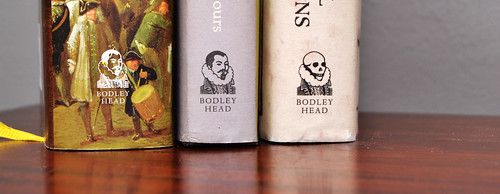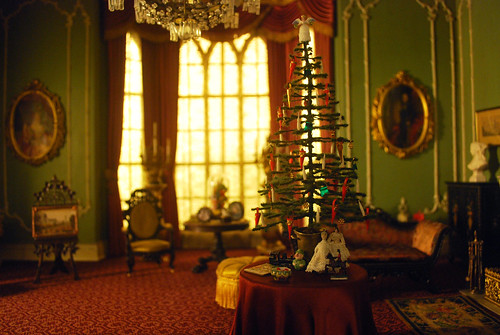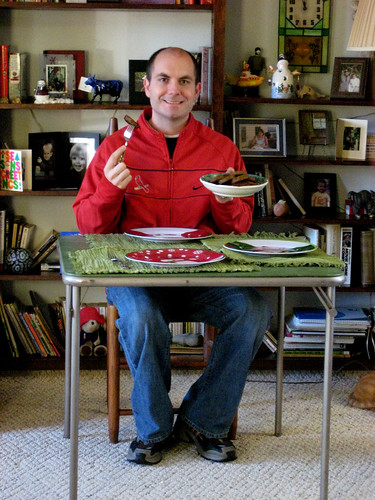While I've been working on the book, I've also been slowly making my way through the last thirty or so of Westlake's novels that I've not read, and that led me not too long ago to his second book, Killing Time (1961). It's a good little corrupt town novel, with nods to Red Harvest but none of that book's whiffs of nihilistic brimstone. In this book, everyone's corrupt, and, frankly, while that's certainly not good, it's not necessarily all bad, either: rather, it's quite simply the way it is.
Late in the book, the protagonist, Smith--a private eye quietly kept on retainer by the corrupt powers that be in the city, another in what would become a long line of Westlake heroes who are nothing like heroes--goes on a rant when he meets a do-gooder from an upstate civic organization that, by arriving and making noises about cleaning up the town, has infected the town with a murderous case of nerves. On learning that Smith has files on crimes in the town dating back years, the do-gooder tries to shame him, only to be told by Smith that turning those records in simply isn't his job.
I'm going to quote at far greater length than usual, because the passage needs to be reproduced in full for Westlake's point--and mine--to be made. His point will be clear; mine is simply that this passage reads to me like as close a statement of opinion from Westlake as we would ever get. Not an endorsement of crime, but an endorsement of the acceptance of reality, and the pointlessness of naive idealism. See what you think:
"Not your job?" He sounded honestly shocked. "Surely, Mr. Smith, it is every citizen's job--"Killing Time is a short book, under 200 pages, and this rant takes up four of them. It feels like a set piece that perhaps Westlake didn't even intend when he set out on it, but that he couldn't help but let run once it caught fire. And it works: it raises and amplifies the underlying themes of the book (and of this genre of book), and it doesn't deform either the character or the story.
"No," I said. For all his individual personality and appearance, completely unlike Masetti, he wound ups spouting the same tired civics-class garbage. "My job," I told him, "was to be a confidential investigator. If the facts I learn wind up in court, I'm not useful."
He shook his head slowly back and forth, the lips once more pursed. "I don't know, Mr. Smith," he said, "I have no idea what sort of arrangement Mr. Masetti had in mind, or what offers he made you, if any, but I'm afraid I'll have to know quite a bit more about the situation here in Winston before agreeing to do business with you. If you are trying now to gain immunity for yourself by making some sort of deal with the Citi--"
"Immunity? What the hell kind of immunity?"
"Now, really, Mr. Smith," he said ponderously. "After all, you have just stated to me that you have in your possession a record of governmental crimes in this community covering the last fifteen years, and that you have, until this very moment, never once attempted to reveal this information to the proper authorities. Quite the reverse. You have gone so far as to admit to me that you have actively concealed the evidence of these crimes."
"Never!" This interview wasn't going at all as I'd expected, and I was beginning to lose my temper. "I have never," I told him angrily, "concealed the evidence of any crime. The evidence has always been there, and is there now. And any proper authority who's interested can go find it exactly the way I did, by looking for it. It isn't my job to do the proper authority's work for it."
"Your job, as you describe it, Mr. Smith," he said pompously, "is a dishonest one."
"As a matter of fact," I went on, talking over him, "what lousy proper authority anyway? The District Attorney? He's one of the biggest crooks in the state. The Mayor? The Chief of Police?"
"that isn't the point," he said.
"Why the hell isn't it? I live in Winston, in the real world. I have to make my living in Winston, in the real world, and that means I have to make my peace with the people who run Winston, and who run the real world. I tried that, and it's always worked pretty well. Now you people have come in and rattled this town out of its wits, and that arrangement doesn't work any more. I'm adapting myself to the new conditions, that's all. I'm no more honest, or dishonest, in the vague abstract total way you use those terms, than anybody else alive in the world. I have a job, and honest and proper job, licensed by the state of New York and the city of Winston, and I do that job as well as I can. And a part of that job is its confidential nature. My job is confidential in exactly the same way that a lawyer's job or a doctor's job or a psychiatrist's job or even a priest's job is confidential. Is a lawyer supposed to report every crime he hears described in his office? Is a priest supposed to report every crime he hears described in the confessional?"
"That is not the same thing, Mr. Smith!" And from the shocked, wide-eyed way in which he said that, I knew I had blasphemed.
"And just why the hell isn't it the same thing? I shouted. I was on my feet now, without knowing how or when I'd stood up, and I kept shaking my fist as I shouted at him. "I've been responsible for crimes solved, reparations made, injustices corrected, without the people involved getting a lot of bad publicity, and without anybody getting a useless jail sentence, and I've--"
"Useless?" That one brought Danile to his feet, too. Blasphemy against the penal system was apparently even worse than blasphemy against the church.
"Yes, you're goddam right, useless! Look, you take a kid--" I had to stop and shake my head and take a deep breath and start all over again, so the words would come out slow enough to be pronounced. "You take a kid, " I said. "He burgles a grocery store. The law gets him, and the court gives him six months in a reformatory, and he comes out a worse kid than when he went in. And ten years and four penitentiaries later, he winds up in one of those modern clinks with the pastel-pink bars and more psychiatrists than prisoners, and they spend five years trying to undo the damage that was done by that reformatory."
"That's an oversimplification!" he shouted.
"How else are we going to talk, if we don't simplify, you fat-headed fact-filled do-gooder?"
"I didn't come here--"
"To be insulted, I know. All right, now, listen, you take that same kid, only instead of the law getting him, I get him. And nobody knows about his crime but me and the grocer and his parents. He gets the scare of his life, when he sees how easily he was caught, and he gets the word on what would have happened if the cops had found him instead of me, and the grocer gets his money back, and the kid never pulls that kind of stunt again."
He shook his head rapidly, saying, "And you accuse me of idealism, when you expect--"
"Expect, hell! That's what happened! That is exactly what happened with a kid who broke into Joey Casales's grocery store. The hell with your theories, I'm telling you what works, and I'm trying to tell you what the goddam system is in this world, and how I fit into that system. And if I don't fit into that system, I'm through."
"If Satan himself--" he started, but I cut him off. "You're goddam one hundred per cent right! I snapped. "If Satan himself were Mayor of Winston, and all the lesser devils had all the offices in City Hall, they would be the ones running my world. And if I expected to live in that world, I would have to make my peace with them."
(Still trying to decide about two of those adverbs, though: "ponderously" I think is perfect, but "angrily" seems unnecessary.)







